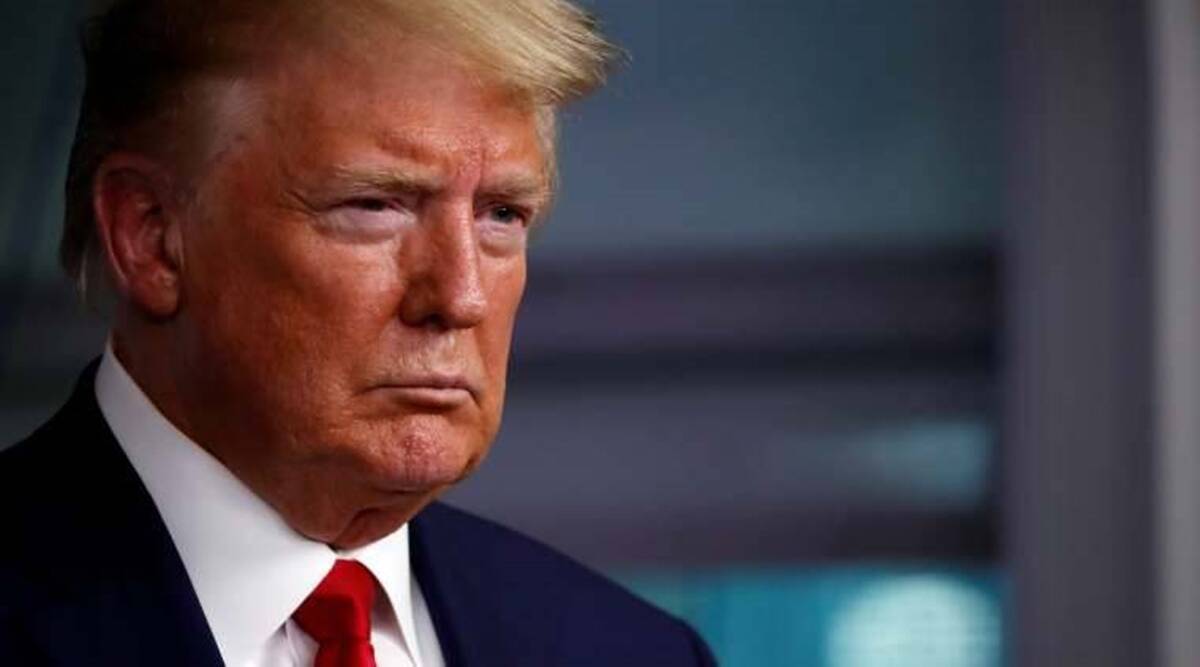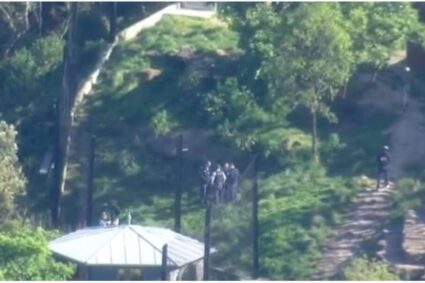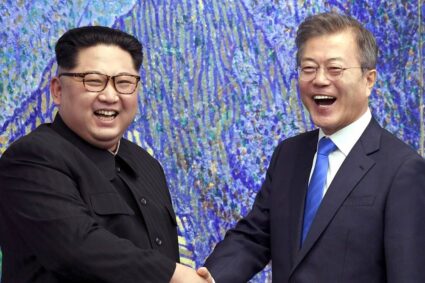

As the Justice Department expands its criminal investigation into the efforts to keep former President Donald Trump’s in office after his 2020 election loss, the critical job of pulling together some of its disparate strands has been given to an aggressive, if little known, federal prosecutor named Thomas P Windom.
Since late last year, when he was detailed to the U.S. attorney’s office in Washington, Windom, 44, has emerged as a key leader in one of the most complex, consequential and sensitive inquiries to have been taken on by the Justice Department in recent memory, and one that has kicked into higher gear over the past week with a raft of new subpoenas and other steps.
It is Windom, working under the close supervision of Attorney General Merrick Garland’s top aides, who is executing the department’s time-tested, if slow-moving, strategy of working from the periphery of the events inward, according to interviews with defense lawyers, department officials and the recipients of subpoenas.
Best of Express Premium
He has been leading investigators who have been methodically seeking information, for example, about the roles played by some of Trump’s top advisers, including Rudy Giuliani, Jenna Ellis and John Eastman, with a mandate to go as high up the chain of command as the evidence warrants.
That element of the inquiry is focused in large part on the so-called fake electors scheme, in which allies of Trump assembled slates of purported electors pledged to Trump in swing states won by Joe Biden.
In recent weeks, the focus has shifted from collecting emails and texts from would-be electors in Georgia, Arizona and Michigan to the lawyers who sought to overturn Biden’s victory, and pro-Trump political figures like the head of Arizona’s Republican Party, Kelli Ward.
Windom has also overseen grand jury appearances like the one Friday by Ali Alexander, a prominent “Stop the Steal” organizer who testified for nearly three hours. And Windom, in conjunction with Matthew M. Graves, the U.S. attorney for the District of Columbia, has been pushing the House committee investigating the Jan. 6 attack to turn over transcripts of its interviews with hundreds of witnesses in the case — spurred on by an increasingly impatient Lisa Monaco, Garland’s top deputy, according to people familiar with the matter.
The raid last week on the home of Jeffrey Clark, a former Justice Department official who played a key role in Trump’s effort to pressure the department to pursue and back his baseless claims of widespread election fraud, was initiated separately by the department’s independent inspector general, since Clark had been an employee at the time of the actions under scrutiny. So was the apparently related seizure last week of a cellphone from Eastman, who has been linked by the House committee to Clark’s push to help Trump remain in office.
But Windom has been involved in almost all the department’s other key decisions regarding the wide-ranging inquiry into Trump’s multilayered effort to remain in office, officials said.
For all of this activity, Windom remains largely unknown even within the Justice Department, outside of two high-profile cases he successfully brought against white supremacists when he worked out of the department’s office in Washington’s Maryland suburbs.
Windom’s bosses appear to be intent on preserving his obscurity: The department’s top brass and its press team did not announce his shift to the case from a supervisory role in the U.S. attorney’s office in Maryland late last year, and they still refuse to discuss his appointment, even in private.
That might not be a bad thing for Windom, the latest federal official assigned to investigate the former president and his inner circle, a hazardous job that turned many of his predecessors into targets of the right, forcing some to exit public service with deflated reputations and inflated legal bills.
“Don’t underestimate how every single aspect of your life will be picked over, looked at, investigated, examined — you, your family, everything,” said Peter Strzok, who was the lead agent on the FBI’s investigation into Trump’s ties to Russia until it was discovered he had sent text messages disparaging Trump.
“You think: I’m doing the right thing and that will protect you,” added Strzok, who is still bombarded with threats and online attacks more than three years after being fired. “I didn’t appreciate that there were going to be people out there whose sole goal is to totally destroy you.”
Any investigator scrutinizing Trump, former prosecutors said, is liable to be marked as an enemy, regardless of the nature of their inquiry. “They were out to destroy Trump, and they were members of our, you know, Central Intelligence or our FBI,” Doug Jensen, 42, a QAnon follower from Iowa who stormed the Capitol, said in an interview with federal authorities, reflecting the views of many right-wing conspiracy theorists about Strzok and other investigators.
Windom is overseeing at least two key parts of the Justice Department’s sprawling investigation of the Capitol attack, according to grand jury subpoenas obtained by The New York Times, and interviews with current and former prosecutors and defense attorneys.
One prong of the inquiry is focused on a wide array of speakers, organizers, security guards and so-called VIPs who took part in Trump’s rally at the Ellipse near the White House on Jan. 6., which directly preceded the storming of the Capitol. According to subpoenas, this part of the probe is also seeking information on any members of the executive or legislative branch who helped to plan or execute the rally or who tried to obstruct the certification of the election that was taking place inside the Capitol that day — a broad net that could include top Trump aides and the former president’s allies in Congress.
Windom’s second objective — mirroring one focus of the Jan. 6 committee — is a widening investigation into the group of lawyers close to Trump who helped to devise and promote the plan to create alternate slates of electors. Subpoenas related to this part of the probe have sought information about Giuliani and Eastman as well as state officials connected to the fake elector scheme.
One of the witnesses he subpoenaed is Patrick Gartland, a small-business coach active in Georgia Republican politics who turned aside efforts by Trump supporters to recruit him as a Trump elector in late 2020.
On May 5, Gartland, who was grieving the recent death of his wife, answered his front door to find two FBI agents, who handed him an eight-page subpoena signed by Windom. The subpoena, which he shared with The New York Times, asked him to provide emails, other correspondence or any document purporting “to be a certificate certifying elector votes in favor of Donald J. Trump and Michael R. Pence.”
Windom’s subpoena sought information about all of Gartland’s interactions and appended a list of 29 names, which represents a road map, of sorts, to his wider investigation in Georgia and beyond.
It included Giuliani; Bernard B. Kerik, the former New York City police commissioner; Boris Epshteyn, a former Trump White House aide; other staff members and outside legal advisers to Trump, including Eastman, Ellis and Kenneth Chesebro; and a handful of Georgia Republicans whose names were listed on potential elector slates.
At least three of the people listed on the subpoena to Gartland — including David Shafer, chair of the Georgia Republican Party, and Brad Carver, another party official — were served similar documents by Windom’s team last week, according to people with knowledge of the situation.
At least seven others not on the list — among them Thomas Lane, an official who worked on behalf of Trump’s campaign in Arizona, and Shawn Flynn, a Trump campaign aide in Michigan — also received subpoenas, they said.
Windom, a Harvard alumnus who graduated from the University of Virginia’s law school in 2005, comes from a well-connected political family in Alabama. His father, Stephen R. Windom, served as the state’s lieutenant governor from 1999 to 2003 after switching from the Democratic to the Republican Party.
The elder Windom, who retired from politics after a failed bid to become governor, was known for his earthy sense of humor: In 1999, he admitted to urinating in a jug while presiding over the state Senate chamber during a round-the-clock session, fearful that Democrats would replace him as presiding officer if he took a bathroom break.
His son has a similarly irreverent side, reflected in humor columns he wrote for student publications when he was younger.
In one of them, a brief essay for The Harvard Crimson that ran on Presidents Day in 1998, he professed to be uninterested in the front-page presidential investigation of that era and oblivious to current events.
“I know little about President Clinton’s current sex scandal or our country’s troubles with Iraq, and I really do not care that much,” Windom wrote. “I place much more importance on what I am doing this weekend, why I have not asked that girl out yet or when I am going to have time to exercise tomorrow.”
Windom’s later career — beginning with his clerkship with Edith Brown Clement, a conservative judge on the U.S. Court of Appeals for the 5th Circuit in New Orleans — belied that flippancy. From the start, even as a clerk, he adopted the mindset of an aggressive prosecutor, writing a law journal article proposing a moderate loosening of a criminal defendant’s Miranda rights.
“Tom was always the go-to guy in the department for the big, important national security cases in and around the Beltway,” said Jamie McCall, a former federal prosecutor who worked with Windom to bring down a white supremacist group known as The Base out of the U.S. attorney’s office in Greenbelt, Maryland, in 2019.
Windom’s exhaustive work on two particular cases brought him to the attention of Garland’s team. One was the trial of The Base in 2020, in which he creatively leveraged federal sentencing guidelines to secure uncommonly lengthy prison terms for the group of white supremacists. The other was the case one year before of Christopher Hasson, a former Coast Guard lieutenant who had plotted to kill Democratic politicians.
But his blunt, uncompromising approach has at times chafed his courtroom opponents.
During Hasson’s post-trial hearing, Windom convinced a federal judge to give Hasson a stiff 13-year sentence — beyond what would typically be given to a defendant pleading guilty to drug and weapons charges — as punishment for the violence he had intended to inflict.
During the hearing, Windom attacked a witness for the defense who argued for leniency; Hasson’s court-appointed lawyer at the time — who is now the Justice Department’s senior pardons attorney — said Windom’s behavior was “one of the most alarming things that I have heard in my practice in federal court.”
Mirriam Seddiq, a criminal defense lawyer in Maryland who opposed Windom in two fraud cases, said he was a personable but “inflexible” adversary who sought sentences that, in her view, were unduly harsh and punitive. But Seddiq said she thought he was well-suited to his new job.
“If you are going to be a bastard, be a bastard in defense of democracy,” she said in an interview.





